INTERVIEWER: What is your background as a Venturan?
SABRENA RODRIGUEZ: My husband and I, with our kids, moved here 12 years ago. We were living in New York at the time, and my husband grew up in Oxnard. He wanted to be, you know, we wanted to move closer to his family so we decided to relocate back in Ventura County. And my husband got a job with the Medical Center, so it kind of made sense for us to be in this area and we just really fell in love with Ventura and all the amazing weather and we’re big fans of the downtown, so we spend a lot of time downtown, you know shopping, eating, hanging out, and he surfs, so that’s just what brought us back really.
At the end of your term, if elected, how will Ventura Unified schools be using technology in ways they aren’t right now? What will be your steps to achieving that result?
RODRIGUEZ: Well, I mean I think if you look at Ventura Unified as a whole, the way we’re using technology is not the same from one school to the next. There’s big differences, particularly at our high schools, but even at our elementary schools, there are big differences, so I think that what I would really like to see us doing is using it more uniformly across our schools so that every student going through our schools has access to the same types of technology and the same opportunities in technology. Because what we’re finding is that technology is not a finite skill. It’s not like you learn to use a Mac and you never have to learn anything ever again. You learn one skill and that translates into the next skill.
And technology changes every year and so what we need students to be able to do is not just learn technology but learn how to be adaptive as technology changes. So, more so than saying, “this is the technology that would be there in four years,” because I don’t think any of us know exactly how technology will be in our classrooms in four years.
But, I would like to see that whatever we are doing as a district — that it’s really fair and equitable across our schools so that every students has the opportunity to do some of the really cool things that you guys get to do here at Foothill. But, also so that even the most remote of our schools is having the opportunity to use things like 3D printing for example, like we don’t have that at all of our schools. [Foothill Technology High School has] that here, we have it at some of our middle schools, but it’s really spotty.
In your opinion, what is the next step to ensuring high school students are prepared for the SBAC (the Common Core standardized test)?
RODRIGUEZ: Well, you know as part of the implementation of the SBAC, we started two years ago really in earnest, implementing common core math. With that came also like the test that the first was just a practice test, so your scores didn’t matter. Last year was the first year that the scores mattered for individual students. And so, I think we need to make sure as we’re moving forward, kids have the skills on the computers so then that part’s not weird, so that using a mouse to take a test doesn’t seem strange, and being able to go backwards and forwards is comfortable for them.
But, also that we’re fully implementing common core math so that students really feel comfortable with the type of math questions that they’re asked— that’s the big difference in common core vs. traditional math. It’s not just the numbers, it’s the language, the ability to work through word problems, and as hard as it is for a student whose got a lot of mastery of english, imagine how hard it is for a student who doesn’t speak English well, or who doesn’t read and write in English well. Because the whole test is all about writing, and that’s something that’s really different between the SBAC and the Star Test, which we used to have. You know, that it’s not multiple choice, a lot of it that you actually have to work through those word problems and it’s a different way of thinking.
I think we need to really work with students so that they’re not being our guinea pigs, because I do feel that, as a district, we really rushed the implementation of common core math. For some good reasons, but we didn’t have the textbooks and support materials to make sure that people could be successful in common core math. As a result, now they’re taking these tests that have real repercussions for high school students. I mean, in middle school it doesn’t matter. You might be bummed to get your test score and learn that you’re not proficient, but it doesn’t really have ramifications for you. In high school, it has real ramifications for you: when you’re applying to college and they look at those scores.
The Ventura Unified budget for this year is around 180 million dollars. If I gave you ten million dollars more today to invest in our school district however you see fit, how would you spend it?
RODRIGUEZ: Wow. It is about 180 million dollars. So, right now, to put that in perspective, we spend 180 million dollars district wide. That does not include food services, food services has its own budget of about 20 million dollars, so all the cafeteria does all that sort of stuff. But, in addition, 82 percent, roughly, is spent on salary. So, you know, all the people who work in our schools, not just teachers, all the classified staff. But that’s really where the magic happens.
You guys are students, you know that the real nuts and bolts of education is the people that work with you: your amazing teachers, the support staff, the office that keeps things running. So that’s really, I think we need more people in our schools. I really do feel like, especially at the elementary schools level, I’d like to see us have more aids and more intervention specialists to make sure that every child is able to read well and write well because it’s the bridge that allows them to take advantage of the opportunities that middle school and high school might provide.
When you get to middle school, if you’re the kid that’s doing remedial English or remedial math, you don’t get to take an elective. A lot of times you get taken out of some of the other exciting programs that we have in our district, like robotics, and some of the dual-immersion things. You don’t get to do that if you’re falling behind academically. So it’s really important that every kid to me be at a level where they’re able to be successful in middle school and high school, and that starts at the elementary school level.
So I would probably put the lion’s share of that there, and then the other thing that I think is just super important that we haven’t fully funded in this district in a very long time is art and music. Our art programs have been maintained but really haven’t thrived. And our music programs especially have survived off the donations of parents and community members. I really think that for a lot of students, those kind of enrichment activities are what brings them to school and is what makes them stronger, better people later on because they’ve had those opportunities.
What do you think is the most pressing issue facing our schools today and how can it be addressed?
RODRIGUEZ: I think that what the biggest issue, certainly the biggest issue that’s relevant, I would assume, to high school students is that you’re graduating many times without practical skills that you need to be successful long-term. So, a lot of high school students, if you’re very driven towards the 4-year university track, you’re going full steam through high school, trying to get in all the math, all the science, all the language arts, and the, you know, APUSH [Advanced Placement U.S. History], all those things, which are great, but it does not leave you a lot of time to develop as a person and to develop the life skills that we want students to have, and to develop things like hobbies and other interests.
So I think it’s important for high school students that we’d be providing lots of opportunities for them to, you know, grow as people and develop skills that would be useful. One example: a lot of students will graduate and never know how to do a budget, or never know how to balance their checkbook, or how to calculate a mortgage payment.
Those are all skills you’re going to need later in life, but we aren’t focusing on that because we’re kind of so busy getting you ready for college. And for the kids who aren’t going to college, we’re still not offering that. So, we’re really falling short in some of the basic, kind of, survival skills of life that we used to teach in high schools.
We used to teach people how to not only do things like budget, but we also had vocational tracks for students, so that if you didn’t want to go to a four-year college or you didn’t have the money or you didn’t have the resources to do that, we used to be able to give you job-skills training in things like welding, electrical, plumbing, so that you could become an apprentice when you graduate from high school. That would help you get a job. You could maybe even do that for a little while you decided if you wanted to go back to school.
We don’t do any of those programs anymore. They’re really cut back. There is new funding available for them. With career technical education, there’s things like the D-Tech that have opened here at Foothill, and other similar programs at comprehensive high schools, but we’re just starting to bring those back. I think for high school students we need to make sure that we’re giving you guys the tools so that you can build your lives. That’s what high school should be about, getting you ready for that next step.
Just to clarify, those programs you talked about that taught kids skills they needed in life—how long ago was that? Do you know?
RODRIGUEZ: We had them really up until No Child Left Behind. In the 80s and the 90s there was kind of a policy shift in education that we were told by the federal government, state government that we wanted to get every child ready for college.
And college is great, and students should certainly not be discouraged from trying to work towards college, but not everyone needs to go to college, not everyone can afford to go to college, and for some kids college just isn’t the right next step. So, we got rid of all those programs in the 80s and 90s. We used to have them in Ventura Unified and we used to have them as a country. That movement kind of swept through and now, as often happens, the pendulum is going the other way, and so all those things are kind of now coming back, not just at our schools in Ventura, but across the country.
Sometimes to students, school board policy decisions seem to come out of nowhere. Most students don’t know their school board members, don’t know when the board meets, and aren’t informed about the decisions the board makes on a regular basis, like for example decisions about curriculum or disciplinary policies. If you are elected, how do you plan to cultivate a closer relationship between the board and the students, ensuring that they get a chance to speak on issues that pertain to them and are informed of decisions once they happen?
RODRIGUEZ: Wow. So I would say that that’s something that does not just apply to students. A lot of adults, a lot of voters, in fact, don’t know that we have a School Board. They don’t understand really what the School Board’s role is. I hear from people all the time, “Well, our city should improve our schools,” but our city isn’t responsible for our schools — our School Board is responsible for our schools.
So I don’t think it’s something that just our youth face, I really do think that our community as a whole, and I’m sure, probably across the country doesn’t feel engaged, doesn’t feel included. But I think we do have the opportunity to open up some new venues for communication. I’m part of the Parent Advisory Council, it’s a group of parents that represent each school site that meet with the superintendent once a month, and it would be great to have something like that for students, where we really invite student participations so that you could hear about policies that are being considered, and give feedback about what’s working and what’s not working.
The challenge is always that you’re so busy as students that when you give someone the opportunity to give feedback, it also really is requesting their time and their attention, and not every student has the time to participate in that. But, I think it would be very interesting to, I mean, already our meetings are televised on CAPS, so someone could watch them, we just know they don’t tend to watch them. And all of our agendas are always published online before the meeting, 72 hours — that’s the state requirement.
So there are already things in place, I think it’s partly just that people don’t take advantage of it, and partly it’s that we don’t have, all of our current board members, except for one, do not have students in the district, and don’t have, they’re just not active on our school sites, other than being board members.
That’s something that’s really different for me, is I am on the Foothill PFSO [Parent Faculty Student Organization] board, I’m on the Ventura High School PTSA [Parent Teacher Student Organization], I used to be president of Cabrillo Music Boosters. So, I’m very involved in our school sites, and I talk to parents and students all the time, so I think it would be relatively easy to get the word out about what the issues are, and to be accessible, because I’m on school sites everyday.
Is there anything else that you’d like to add?
RODRIGUEZ: For me, the whole reason for me to run for the School Board really is just that I believe our students deserve the best education we can possibly afford to give them. Not just because it’s the right thing to do for students, but because it’s the right thing to do for our community.
When we are graduating students who are well-trained, who are prepared, who feel empowered to make a difference, our whole community benefits from that, not just the families whose kids are in school. I really think that what you all should demand, by that, I mean, you know, students, you should demand that anybody who’s seeking this position really care about the kids.
There’s 180 million dollars that go into those decisions every year, and you should expect that whoever’s making those decisions is really keeping as their bottom line, “Does this benefit students and how directly will this benefit students?” because to do less than that isn’t fair, it’s just not right.

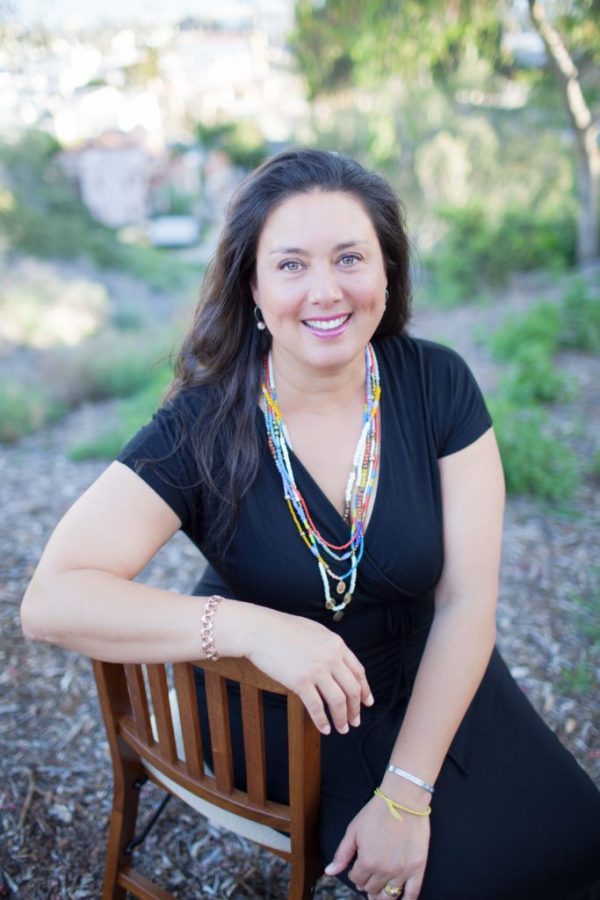


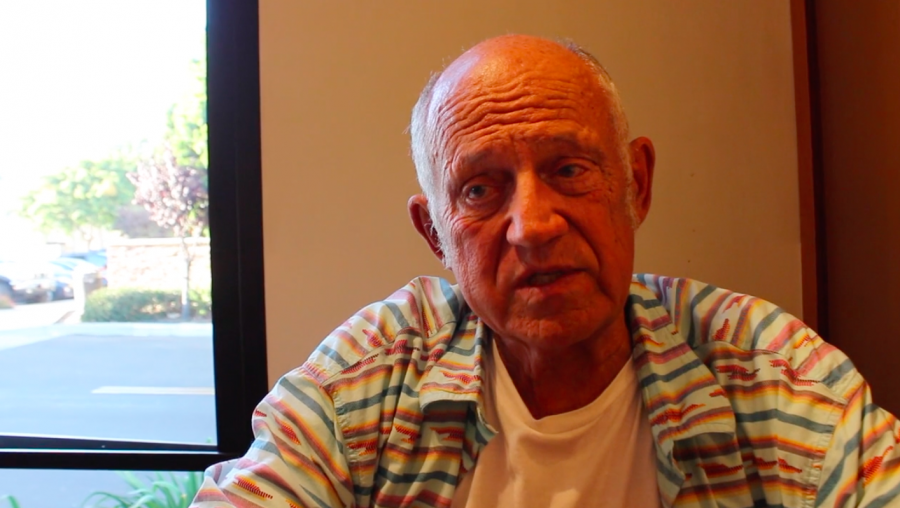
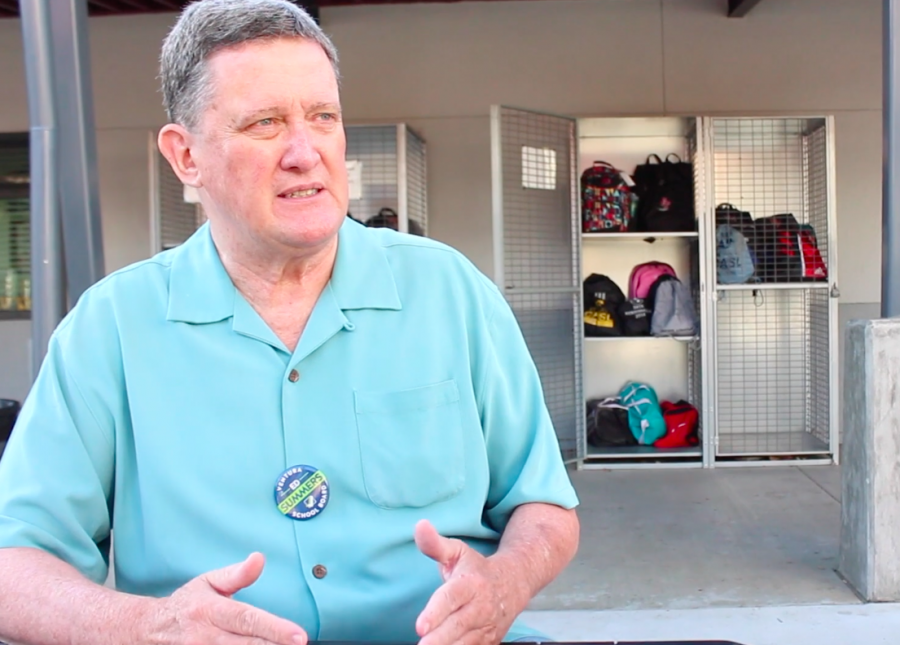
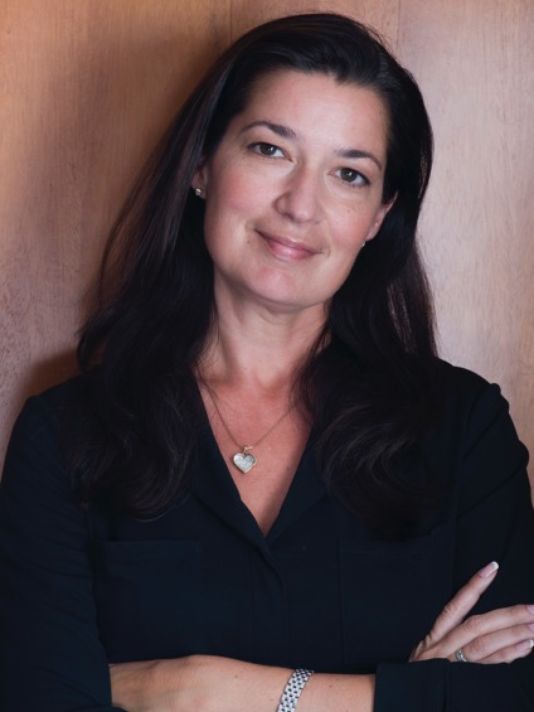

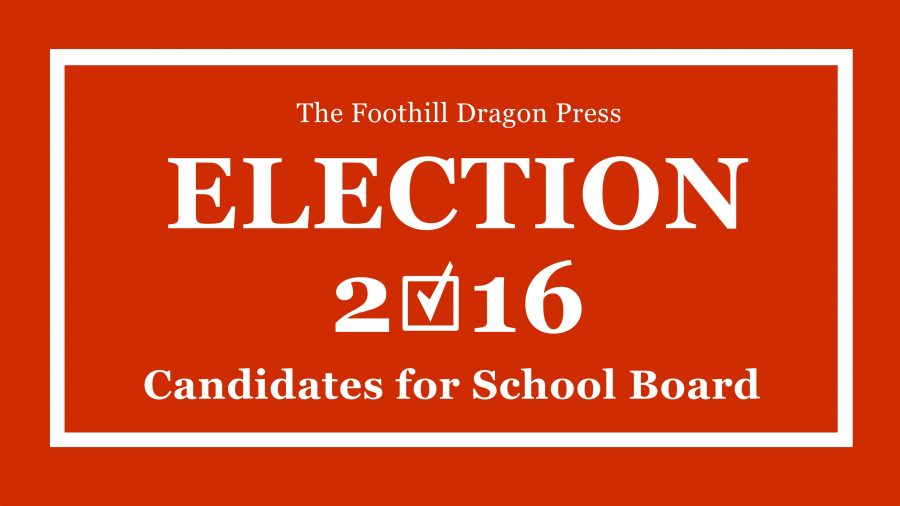


Sabrena Rodriguez • Nov 6, 2016 at 5:41 pm
Thank you, Jocelyn and the FDP, for the great interview questions! Having had several interviews during this political season, I can tell you honestly that your questions were the most thoughtful that we received. I know I’m biased, but I am a huge fan of the Dragon Press and their strong commitment to journalistic excellence. Cheers, Sabrena